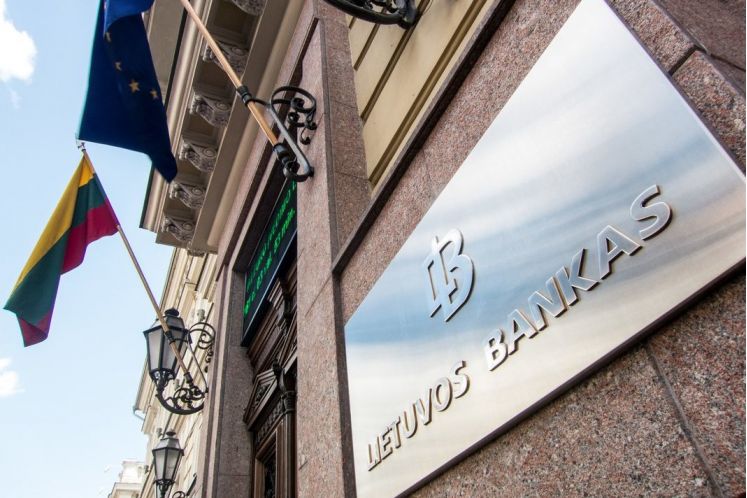- Home
- Business Development in Lithuania
Business Development in Lithuania
In the recent years, the favorable opportunities for investments and trade in Lithuania attract more and more foreign enterprises and businessmen: they choose Lithuania as a stable country that offers a comparatively simple and safe investment policy. Attraction of investments to Lithuania is one the key strategic objects of the state, so, upon striving to the maximum efficiency of its accomplishment, Lithuania permanently takes every measure for improving its image and attractiveness among investors both in the country and in relations with foreign states and physical persons residing in foreign states. Upon striving for increasing the number of investments and their amounts to the maximum possible extent, Lithuania even developed a system of support to foreign investors that wish to establish and develop their activities in Lithuania. The business sector of Lithuania has been reformed and at present it conforms to all the requirements and standards set by the European Union, so Lithuania is attractive for investors because of safety, transparency and conformity to the standards. Upon striving to avoid isolation of business in Lithuania and make it global, Lithuania concluded agreements for avoidance a double taxation with 53 states of the world, including Great Britain, USA, Canada, China, Switzerland etc. So, business in Lithuania becomes global and easier accessible for investors from foreign states.
According to the relevant legal norms of Republic of Lithuania, investing in business in Lithuania is a lawful base for immigration of an alien to Lithuania. Lithuania provides an opportunity to come to Lithuania and reside here on the base of a lawful activity, i.e. investing in business, to foreigners, thus striving to attract capital, effective working procedures and new ideas. Foreigners in Lithuania may contribute to management of an existing legal entity (to become a shareholder of the enterprise) or establish a new legal entity. The conditions for establishing a new enterprise and starting a business in Lithuania are not complicated: for starting a business, only several days are enough; upon using an electronic signature, the procedure an incorporation of an enterprise in Lithuania becomes particularly simple and enables to save time and money.
With regard to the investing opportunities in Lithuania, it is notable that seven free economic zones operate in Lithuania at present. They are territories where economic and legal opportunities provided by legal norms are particularly favorable for operation of economic subjects. To enterprises registered in a territory of a free economic zone and their employees, various tax advantages are applied; they are provided consulting services etc. In addition to free economic zones, science and technology valleys where business potential is concentrated as well operate in Lithuania.
 Setting up new companies
Setting up new companies
Setting up a new company is one of the first steps of a new business that requires special knowledge and skills. People who consider starting a business in Lithuania often ask themselves, whether it is better to set up a company, buy an already set-up company or invest in an already established and functioning business. All of the options are favourable when starting a business in Lithuania and all have their benefits and drawbacks.
 Company in Lithuania
Company in Lithuania
The most popular and common company established in Lithuania is a Private limited liability company (LLC)/ Closed joint stock company. The authorised capital of the Private limited liability company/ Closed joint stock company must be not less than 2 500 Euro. The law provides for a maximum number of shareholders in the Private limited liability company/ Closed joint stock company– no more than 250 shareholders. The management body is the manager, or, a collegial supervisory body is formed – the Board.
 Setting up a representative office or a branch in Lithuania
Setting up a representative office or a branch in Lithuania
Part of businessmen who wish to start a business in Lithuania need to decide, whether they should set up a company or a representative office of a foreign company. Both options have their benefits and drawbacks.
Setting up a company is a simpler, cheaper and faster process that requires less founders' effort and participation in the process. It is enough to have a copy of passport of the founder, filled-in forms and authorisation to establish a company in Lithuania.
 Opening a bank account
Opening a bank account
The company that is active in Lithuania should have a bank account in one of the Lithuanian banks. It makes the process of financial settlements with employees, suppliers, partners, and other persons easier, as well as the procedure of paying taxes to public authorities.
Opening a bank account in one of the Lithuanian banks is not a simple process if the company owner is a foreigner or foreigners. Lithuanian banks have tightened the policy of opening bank accounts and the reliability verification of foreign subjects and their authorised capital.
 Registration as a VAT payer
Registration as a VAT payer
Registering a company as a VAT payer may be both mandatory and voluntary procedure in Lithuania.
A voluntary registration as a VAT payer is available for legal entities who are active or are going to become active.
A registration as a VAT payer is mandatory for the company if the annual income for the goods sold or services provided is over 45,000 EUR.
In case the company wants to be included in the VAT Register, it should submit an application and other necessary documents to the State Tax Inspectorate.
 Licences in Lithuania
Licences in Lithuania
Like in other countries, a licence is needed in Lithuania to carry out certain activities. Licence is a permission issued by a competent state authority to carry out a respective activity indicated in the licence. The documents required to receive a respective licence, places to go and procedures, and terms and conditions of the licence depend on type of the licence you want to obtain.
 Search for personnel, selection and recruitment procedures
Search for personnel, selection and recruitment procedures
Good staff and suitable employees is one of the conditions of a successful company.
Upon starting and developing business in Lithuania, the companies often face the need for employees, personnel selection and hiring, many questions arise.
Search and selection of employees has become especially important for foreign businessmen of Lithuania, who plan to apply for a permission to live in Lithuania.
 Accounting services
Accounting services
Accounting procedures is mandatory for legal entities (including companies) who carry out business in Lithuania. Depending on the legal status of the company, different accounting requirements apply. For example, Sole Proprietorship or Small Partnerships may carry out simplified accounting in Lithuania.
Company usually needs an accountant for accounting works. The accountant may be hired by a work contract or the company may sign an agreement with the company of accounting services regarding provision of accounting services and accounting works.
 Legal services
Legal services
We provide the following legal services to companies:
- Constant consultation regarding legal issues. Consultation regarding setting up and registering companies, branches and representative offices, company rearrangement, bankruptcy, reorganisation, business purchase and sale, company purchase, merger, explanation and application of tax legislation, consumer protection, advertising law, organising and implementing public procurement, debt recovery and prevention, and other issues. Preparation of related documents and their projects and representation;
 Business Certificates or Certificates or Individual Activity Certificates
Business Certificates or Certificates or Individual Activity Certificates
The relevant legal norms of Republic of Lithuania provide opportunities for involvement in individual activities and gaining profit. In Republic of Lithuania, a person may choose one of the alternative ways for individual activities: to acquire a Business Certificate or to acquire an Individual Activity Certificate. One of the key differences between the above-mentioned forms of individual activities is that the activity under a Business Certificate is a subject to restrictions, i.e. more strict requirements are set for choosable activities.
 Classification of enterprises
Classification of enterprises
According to valid legal norms of Republic of Lithuania, all enterprises established in Lithuania are provided a status of a legal entity. According to the goals of their establishment, legal entities are divided to private and public legal entities. The main goal of establishment of private legal entities is satisfaction of private interests and profit making. According to their legal form, such legal entities are considered joint-stock companies of limited liability, joint-stock companies, individual (one-man) enterprises, partnerships and so on, if the principal goal of their activities specified in the constituent documents is profit making.
 Investments and trade
Investments and trade
In the recent years, the favorable opportunities for investments and trade in Lithuania attract more and more foreign enterprises and businessmen: they choose Lithuania as a stable country that offers a comparatively simple and safe investment policy. Attraction of investments to Lithuania is one the key strategic objects of the state, so, upon striving to the maximum efficiency of its accomplishment, Lithuania permanently takes every measure for improving its image and attractiveness among investors both in the country and in relations with foreign states and physical persons residing in foreign states.
 Acquisition of land
Acquisition of land
Following the provisions of the Article 47 Part 3 of the Constitution of Republic of Lithuania, foreign subjects may acquire land in Lithuania in accordance with the Constitutional Law on a Membership of Lithuania in European Union. However, it should be noted that according to the said Law, only the subjects that conform to the European and Transatlantic criteria may acquire land in Lithuania. Subjects that conform to the said criteria include: legal entities established in European Union Member States, European Free Trade Association (EFTA) Member States or free economic zones.
 Finance and taxes
Finance and taxes
Republic of Lithuania is realizing the tax policy that favorable for business and the total tax system of Republic of Lithuania has been developed following the provisions of legal norms of the European Union. After the restoration of Independence of Republic of Lithuania, the tax system of Republic of Lithuania was changed in course of time, i.e. the tax system was transformed in such a way that could ensure the maximum extent of foreign investments and support for them as well as increasing development of the labour market.
 Trademark Registration in Lithuania and in the European Union
Trademark Registration in Lithuania and in the European Union
For every business with its own trademark, it is important to ensure its legal protection that the trademark would not lose its prominence and reputation among customers thereof, and no one can be able to copy it. The owner of registered trademark acquires the right to prohibit other persons from using any mark, which is identical or similar to his/her registered mark, without his/her consent. The owner of trademark shall be entitled to apply to the Court due to trademark copying infringements.
 Financial Institution Licensing in Lithuania
Financial Institution Licensing in Lithuania
In Lithuania, the activities of the financial institutions which are engaged in the provision of licensed financial services shall be supervised by the Bank of Lithuania.
Registered financial institutions or companies must obtain a licence (authorization) in order to provide financial services, which are licensed under the laws of the Republic of Lithuania.
Licences (authorizations) to provide financial services shall be issued to a financial institution in accordance with the procedure set forth by the laws of the Republic of Lithuania regulating the provision of financial services and pursuit of the activities of financial institutions.
































